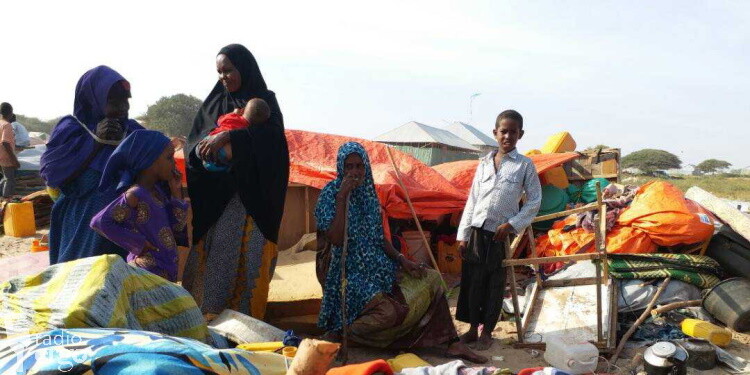
Barre (his real name concealed for his safety) has gone into hiding in the northern Somali town of Lasanod with one of his two wives and their four children, after his first wife and their three children were rounded up by the authorities whilst they were at home.
“I have been in hiding for three days with my second wife and children. I don’t know the whereabouts of my other wife and her three children. I left them at home, she called to tell me that she and the children were rounded up by the police and that was our last conversation,” he told Radio Ergo agitatedly.
Barre said his wife called him when he was at his tailor’s shop to inform him that they had been captured and were being transported in the back of a police vehicle to Abdi Bile stadium in the town.
“I have been informed that the phones of those held in the stadium have been confiscated. I tried several times to contact her, but I couldn’t reach her,” he added.
Hundreds of families from southern Somalia were held in the stadium before being forcefully driven out of the town using lorry trucks. According to the humanitarian community, more than 1,000 women, children and men were forcibly displaced from Lasanod on 2 and 3 October. There are fears of additional forced displacements planned in the coming days.
Lasanod, the main city in the northern region of Sool, has for many years been part of territory contested by Somaliland and Puntland.
Barre, 28, said he was told by his neighbours that the police visited his house three times looking for him. He told Radio Ergo he and his children are being hosted by some friends in the town.
“I am worried that the children and their mother will be separated and transported in two different vehicles,” he said.
He is waiting for contributions of money from his local friends so that he can move out with his second wife and children to Puntland, where he will search for his other family.
“I owned a tailor shop in Lasanod,” Barre stated bitterly. “I was brought here when I was two years old in 1993. I employed three people and I used to clear around 15 dollars a day. It was enough to support both my wives and the children.”
Barre said his shop has been closed since Saturday 2 October, when the rounding up of people started. He also owns a plot of land that has not yet been developed. He estimated the value of his property and assets in Lasanod at $7,000.
Nasteho Abas Mukhtar, a 28-year-old divorced mother of four, was among those forcefully expelled from the town. She was born, raised and married in Lasanod. She was at her shop, she explained, when she was informed that her children had been rounded up by the police. She closed the shop and hurried home.
She and her children were all taken to Abdi Bile stadium and later driven to Harfo, a remote village in Mudug region, 240 kilometres to the south.
She was separated from her young daughter and is frantic with worry.
“We were transported from Abdi Bile stadium in the evening. I lost one of my daughters, and I don’t know whether she has been left in Lasanod or if she is among those who have been transported out of the town. She is 10 years old and was in the madarassa when we were rounded up. I am very worried about her,” Nasteho told Radio Ergo. “I also left all my wealth behind in Lasanod,” she added.
Falhada Abdi Muday, who had lived in Lasanod for 14 years, was also forcefully displaced to Galkayo, more than 300 kilometres south, where she and her eight children are now stranded without any shelter, food and water.
She worked as a cleaner to provide for her children, as their father had been sick for the last two years in Baidoa. She said she had to leave everything in her home behind, even the children’s clothes, as the soldiers who rounded them up refused to allow her to carry anything.
“I left behind three rooms, utensils, furniture, a television, and even 10 grams of gold. The soldiers stopped me from taking anything with me as I left. We are facing huge challenges, we don’t have shelter, food and water. My children are starving,” Falhada told Radio Ergo.
Source: Radio Ergo


